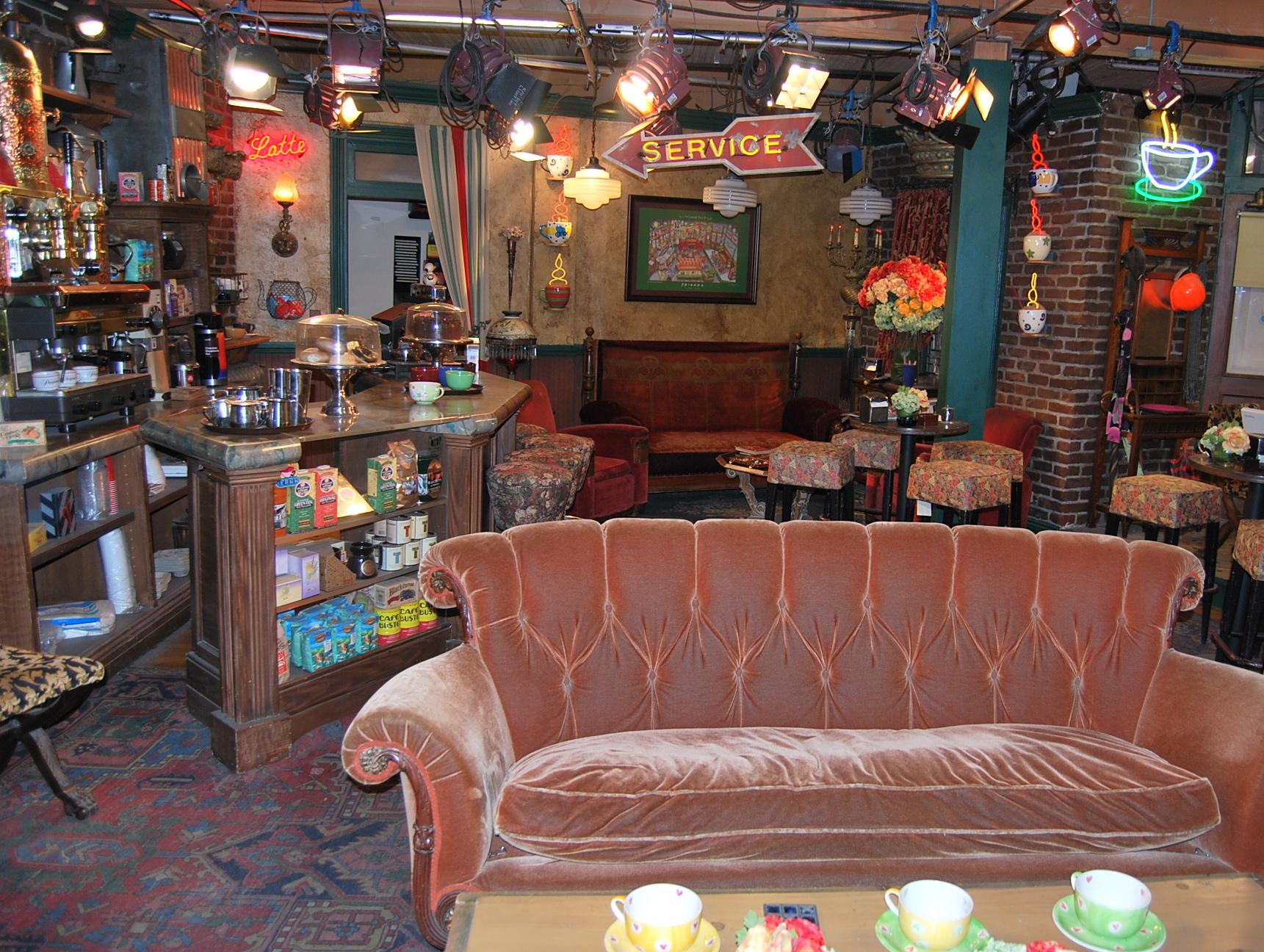Entertainment
‘Friends,’ ‘Grace and Frankie’ creator outfoxes sexism

FILE: Set of Central Perk at Warner Bros. Studios (Photo By Moviefan – Own work by uploader, Jan Klaver, CC BY-SA 3.0)
LOS ANGELES — Ask Marta Kauffman if there will be a “Friends” reunion someday, and the answer is a crisp “nope.”
Kauffman, who created the enduringly popular sitcom with David Crane and was an executive producer from start to finish, is focused on what’s now and next, not what’s past.
She’s moved on from the 1994-2004 network-airbrushed adventures of young New York pals to the unvarnished pains and pleasures of older women — and, subordinately, men — in “Grace and Frankie.”
The Netflix comedy is in the hunt to add 2019 Emmy Award nominations to those earned in its first four seasons by stars Jane Fonda and Lily Tomlin, who also have received Screen Actors Guild, Golden Globe and other nods of recognition.
“Friends” can boast of nabbing a best comedy series Emmy in 2002 and trophies for cast members Jennifer Aniston and Lisa Kudrow. But whatever lies ahead for “Grace and Frankie,” Kauffman, 62, has already gained rewards beyond another shelf-hogging statuette.
Among them: How much viewers appreciate seeing their own experiences with aging reflected on screen, including the woman who shared her delight over one of the show’s candid, yes-it-went-there revelations of body changes “because she thought she was a freak,” Kauffman said.
Then there’s the show’s unexpected appeal, she said.
“We had no idea that we would speak to younger women,” Kauffman said, “that younger women were looking for role models, were looking for information, were looking for people to talk about the stuff that they’re going to expect.
“But it’s also aspirational for women, period,” she added.
Grace and Frankie team up to start their post-divorce lives anew after their husbands, long-time law partners played by Martin Sheen and Sam Waterston, reveal they’re also long-time lovers who want to live together. The show is about resisting a reductive view of aging and, to put it in appropriate boomer-speak, the power of sisterhood.
While gender equality may be getting a #MeToo-powered push in Hollywood, there’s been barely a dent in ageism, as the rarity of TV series or movies lead by older actors and from older producers can attest. “The Kominsky Method,” from producer Chuck Lorre (“The Big Bang Theory”) and starring Michael Douglas and Alan Arkin, joins “Grace and Frankie” (created by Kauffman and Howard J. Morris), as an outlier.
Kauffman’s disregard for the industry’s youth obsession extends to the personal: her hair, which started turning gray when she was 40, is untouched by dye and fully silver.
No value in such cosmetic tricks? “Like who we fooling?” she replied, laughing.
That her career flourished despite her gender and continues to be robust is proof of Kauffman’s writing and producing skills and her tenacity. It’s easy for her to summon early memories of being a woman in a man’s world.
During meetings with her then-production company partners Crane and Kevin Bright, other men in the room would “look at Kevin and David, but not at me. So to a certain extent, I felt invisible.”
Such attitudes survived despite the success of “Friends.” She recalled working through a taping one Friday night despite feeling unwell, and trying to brush off a man who asked about her apparent discomfort. She finally told him she had menstrual cramps — not exactly a fatal or uncommon condition.
“And his comment was, ‘This is why I hate to hire women,”’ Kauffman said. She declined to identify him, but said it wasn’t an isolated incident.
There was “incredible misogyny and sexuality and objectification” connected with the show, she said. “And the way people dealt with me, I was a woman first. I would be called a ‘tough broad,’ a ‘tough cookie.’ The male producers were never called names like that. They never had to be qualified” by an adjective, she said.
How did she overcome it?
“I guess to a certain extent, just sheer resilience. I felt like I couldn’t let the demeaning men win,” she said. As for whether the outcry provoked by misconduct revelations is having an effect, Kauffman expresses measured optimism about the future: “Just because it’s out in the public doesn’t mean it’s going to change overnight, but I do think people are trying.”
Hannah KS Canter, her daughter, offers an insider’s perspective on her mom’s success. Canter is a development executive with Okay Goodnight, Kauffman’s production company, and a producer on “Grace and Frankie.”
She called Kauffman a strong, steady leader who fosters a humane workplace in which all voices can be heard, especially women’s. “She makes sure they are heard and supported and amplifies their voice when needed,” Canter said.
Perhaps tongue-in-cheek, Kauffman suggests she’s saving the juicy career stuff, including names, for a post-retirement memoir (cue nervous male laughter). But that’s nowhere in sight, with Okay Goodnight’s projects including “Grace and Frankie,” development of a TV adaptation of Karen Jay Fowler’s novel “We Are All Completely Beside Ourselves” and the current Netflix documentary “Seeing Allred,” about activist-attorney Gloria Allred.
So why isn’t revisiting “Friends” in some fashion on the horizon? The idea pops up now and then, most recently when Aniston, aka the sitcom’s Rachel Green, expressed interest after long dismissing the possibility. The actress later said there are no plans, and Kauffman insists it’s staying that way.
“Why mess up a good thing?” she said. “We wouldn’t want a reunion to disappoint fans.”





















